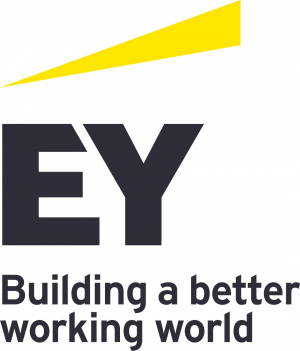The global pandemic has renewed trust in science
22.03.2021Company: 3M Česko
During the pandemic, has our relationship with science evolved?
- For many, the global pandemic has brought about seismic changes that have shifted life as we know it.
Anecdotal evidence suggests that everyday citizens have also shifted how they think about, interact with and relate to science: During the pandemic, scientists and experts have become the new rock stars; friends and family are displaying a renewed thirst for knowledge; the scientific method is playing out in real time as experts share innovations relating to immunity, cures and containment strategies; leaders around the world are relying on science to inform shifts in societal behavior that have massive economic and health implications; and PPE has become a familiar part of our everyday vernacular.
- The world is waking up to the role that science plays in our everyday lives
In wave three of the 3M State of Science Index, science skepticism officially became a trend. Based on global data from the Index, the trajectory of skepticism increased over three consecutive years (29% in 2018 to 32% in 2019 to 35% 2020 Pre-Pandemic). But in summer 2020, against the backdrop of COVID-19, the trend reversed itself. A world that was becoming increasingly skeptical of science appears to be waking up to its relevance and importance. Today, skepticism, at 28%, has declined for the first time in three years.
There are other optimistic signs, too:
- Trust in science climbed to 89%, the highest since SOSI began.
- Those who only believe science that aligns with their personal beliefs is down a significant 6 points since the 2019 survey.
- 54% agreed that science is very important to their everyday lives, up a whopping 12 points since the 2018 survey.
- 54% are now more likely to advocate for science due to the pandemic—important, considering that before the pandemic just 20% said they would stand up for science when debating its merits.
But the needle hasn’t moved on everything. Nearly 2/3 (63%) rarely think about the impact science has on their everyday lives—and nearly one third still believe their lives “wouldn’t be that different” if science didn’t exist.
Pandemic or not, challenges for science and science advocacy are abundant.
- Sustainable solutions are still a priority
Over the four waves of our survey, two issues have repeatedly risen to the top as being among the most important for science to solve — healthcare and sustainability. Other issues are important too, with racial equality/STEM equity, emerging as a key concern.
Insights gathered before the pandemic provide important clues to sustainability priorities people most want companies to address, such as:
- Using recycled and renewable materials in product development
- Powering facilities with renewable energy sources
- Reducing plastics in products
- Reducing waste created by facilities.
In summary, it appears the global pandemic has not relegated the importance of environmental issues, even as new priorities come into play.
But how can science help?
- Quality STEM education for all is crucial… but students need encouragement
When it comes to solving future global challenges, access to STEM education is considered a critical piece of the puzzle. Since the pandemic caused by COVID-19, 74% are more likely to believe that the world needs more people pursuing STEM related careers to benefit society's future.
Being discouraged from pursuing science at school is a key issue—especially evident amongst younger generations—undermining the science community’s ability to attract future generations of scientists. In fact, Gen Z and millennials are about twice as likely to say they were discouraged from taking science in school than their Gen X and baby boomer counterparts, often because they lack access to science classes. Inequalities—including race, ethnicity and gender—also emerge as barriers to the pursuit of science, especially in the U.S.: Americans who were discouraged from science are nearly twice as likely to say that some form of inequality played a role (50% U.S. vs. 27% globally).
Here are some ways schools could inspire students to pursue science:
- Teach science in a more engaging way
- Show students how science gives them a platform to make the world better
- Give students a better understanding of the spectrum of career opportunities in science
- Science leadership: follow the science — and collaborate
One thing is clear: the world agrees we should “follow the science” to contain the spread of COVID-19. But there is a perceived gap in expectations versus reality: 61% believe that other countries place a higher value on science than their own. So, what else can we do to fuel scientific and technological solutions that solve similar global challenges?
Collaborate, survey respondents say.
According to the data, though governments are key to solving societal challenges, they are not expected to address these issues alone. Collaboration across government, non-profits, the private sector and even individual citizens is seen as a key opportunity to drive real change through scientific solutions, and people expect corporations like 3M to play their part by working with governments to help solve global challenges—a sentiment that is second only to preparing for future pandemics/disease outbreaks.
Is it possible that as its role becomes more visible to people around the world that science will continue to gain respect? The survey suggests relevance of science has grown in recent months, and with it, so has appreciation.
State of Science Index Survey
Tags: Education |







